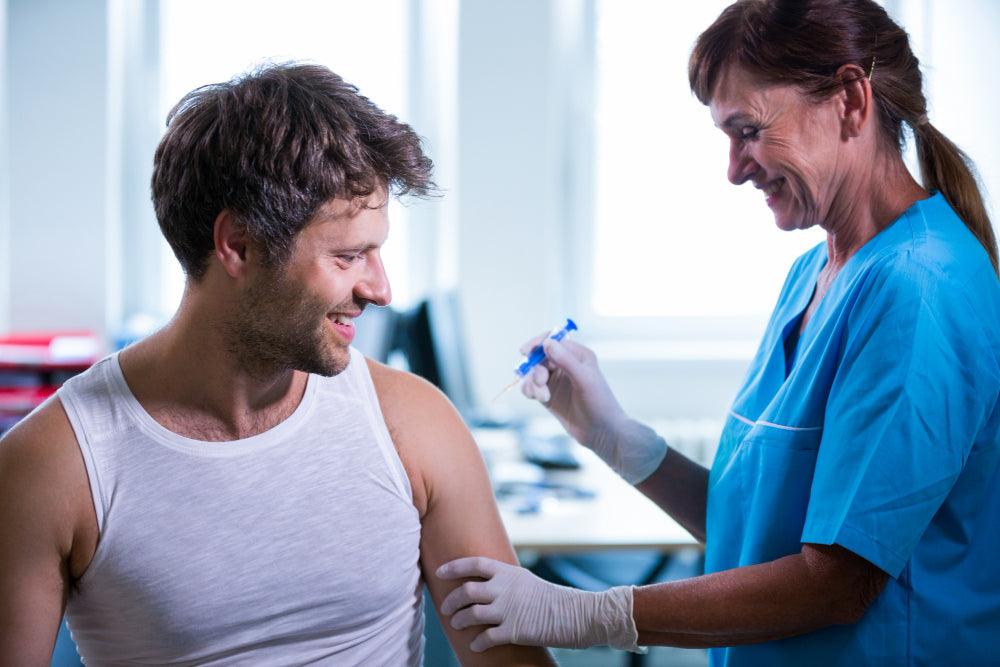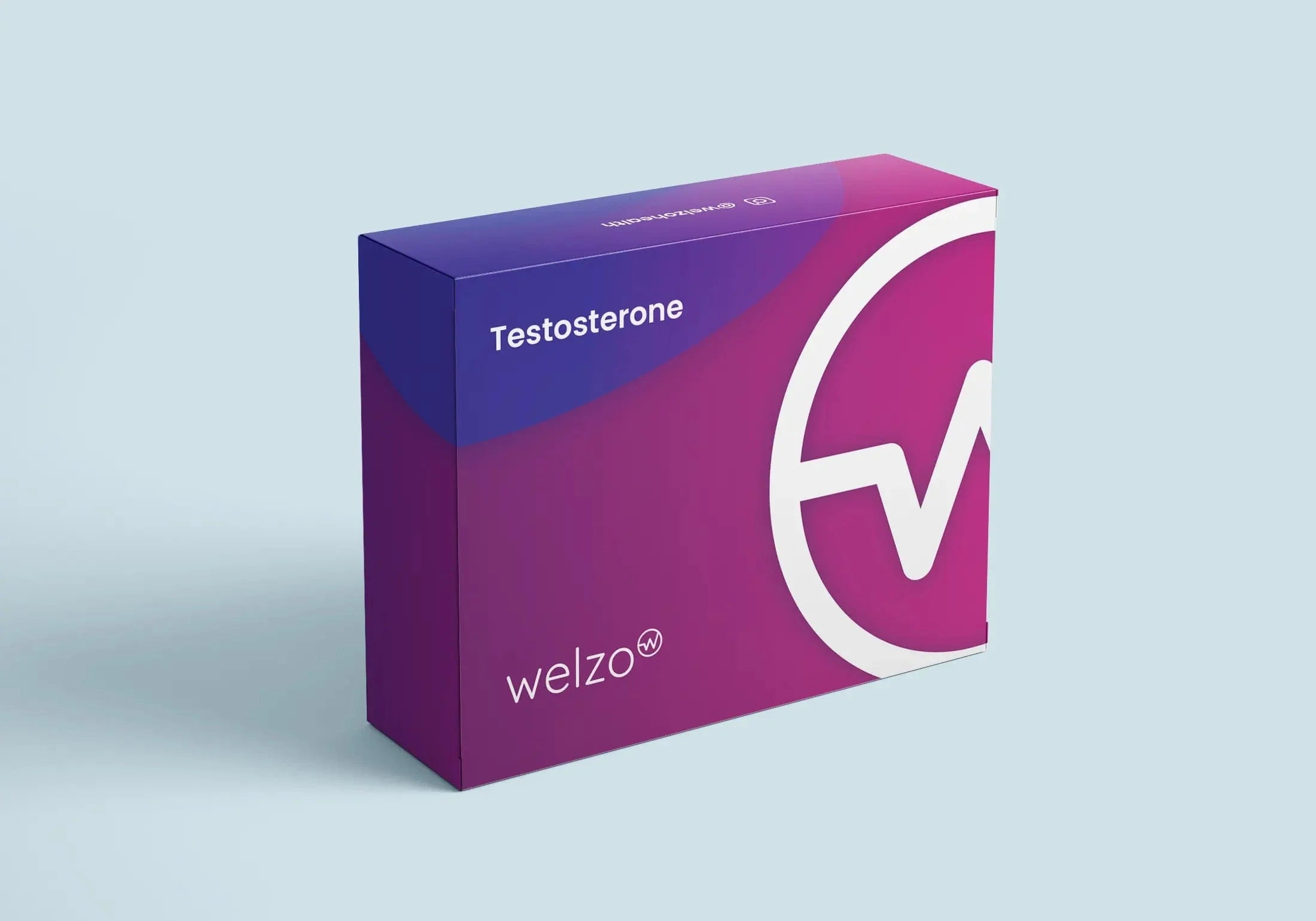Celebrities Testosterone Replacement Therapy


Testosterone Replacement Therapy, popularly referred to as TRT, has become a trending topic in recent years, notably within the celebrity world. In their relentless quest for longevity, vitality, and physical perfection, more and more celebrities are seeking this medical intervention. While the reasons may vary from one individual to another, the underlying factors appear to be the same: to maintain a youthful appearance and enhance physical performance.
Low Testosterone, colloquially termed as Low-T, is a health condition that has seen an increased spotlight in recent years. It is characterised by a decrease in the hormone testosterone, a hormone responsible for male characteristics and muscle development, says Dr. Adam Rutherford, a notable endocrinologist in the UK. He further adds that it's not uncommon for men over the age of 30 to experience a drop in testosterone levels. In the world of stardom and spotlight, this can have adverse effects on their physical appearance, energy levels, and overall performance.
Several public figures have opened up about their experience with TRT. Celebrities such as Sylvester Stallone and Joe Rogan have spoken publicly about their use of testosterone replacement therapy. Their candidness has played a significant role in reducing the stigma associated with TRT and has opened up discussions surrounding its effects and efficacy.
There remains, however, some controversy and stigma attached to testosterone therapy. Critics often argue that it is merely a means of legal doping, while others worry about potential health risks. Despite these concerns, health professionals such as Dr. John Anderson, an endocrinologist at the Royal Free Hospital, believe that with proper medical supervision, testosterone replacement therapy can significantly improve the quality of life for men suffering from Low-T.

Buy Testosterone Blood test online here.
Testosterone Replacement Therapy is a medical treatment that aims to restore the body's testosterone levels to a normal range.
Testosterone is the primary male sex hormone, but it's also found in women, albeit in much smaller amounts. It plays a crucial role in many bodily functions, including mood regulation, sexual function, muscle and bone development, and even the production of red blood cells. When these levels are not in a healthy range, it can lead to several health issues, such as low energy, mood swings, and loss of muscle mass.
TRT can be administered through various methods. Commonly, it is given through injections, skin gels, patches, or pellets implanted under the skin. Each method has its advantages and disadvantages, and the choice often comes down to personal preference, lifestyle, and medical advice.
Like any medical intervention, TRT has both advantages and disadvantages. On the plus side, it can help restore energy, improve mood, increase muscle mass and bone density, and enhance sexual desire. Conversely, potential side effects can include acne, sleep apnea, and increased risk of heart disease and stroke.
Safety is a critical concern when it comes to any form of hormone therapy. "TRT, when administered under the supervision of a medical professional, can be safe and effective. However, self-medication or misuse can lead to serious health complications", says Dr. Henry Tobin, a renowned endocrinologist at the London Clinic.
Some celebrities who have undergone TRT have reported side effects such as mood swings, increased aggression, acne, sleep apnea, and changes in cholesterol levels. However, as Dr. Tobin points out, these effects are not exclusive to public figures but can be experienced by anyone undergoing the therapy.
Several celebrities, including action film star Sylvester Stallone and popular podcast host Joe Rogan, have publicly acknowledged their use of TRT. Their experiences and openness about the therapy have helped shine a light on this often misunderstood treatment.
Many celebrities prefer renowned clinics such as the London Clinic and specialist doctors like Dr. Adam Rutherford and Dr. Henry Tobin for their TRT. These professionals and institutions offer an elevated standard of care and discretion that public figures often require.
The curiosity surrounding Testosterone Replacement Therapy (TRT) among celebrities has led to a surge in search queries and public discussion on various aspects of this treatment.
Celebrity endorsements of TRT have played a significant role in popularising this therapy. Actors, athletes, and other prominent figures have openly shared their positive experiences. The celebrity stamp of approval has undoubtedly led many to consider TRT as an option to combat Low-T. Mike Tyson, a well-known boxer, went on record stating, "TRT has changed my life, and I wish I had known about it sooner," during an interview with Men's Health UK magazine.
For celebrities, the legal considerations surrounding TRT are paramount. TRT must be administered under medical supervision, and obtaining it without a prescription can lead to legal repercussions. It's essential for public figures to be mindful of these legalities, says Dr. James Thompson, a legal expert in medical law at the University of Cambridge.
The cost of TRT can vary widely depending on the method of administration and the provider's expertise. Celebrities often opt for high-end clinics where the cost can range from £500 to £2,000 per month, including consultations, monitoring, and the therapy itself, according to Harley Street Clinic's latest price guide.
Testosterone plays an essential role in physical performance and appearance. It promotes muscle mass, regulates fat distribution, and increases energy levels. Celebrities, whose careers often depend on their physical appearance and performance, are especially aware of these effects. As Dr. Sarah Marshall, a leading endocrinologist in the UK, puts it, "Optimal testosterone levels can enhance an individual's overall physique and energy, making them look and feel younger."
The on-screen appearance is vital for many celebrities, and TRT can significantly impact their image. Enhanced muscle tone, reduced body fat, and increased vitality may translate into more robust on-screen performances. This can be particularly appealing for actors in action roles or athletes seeking to prolong their careers.
Public perceptions of TRT among celebrities are mixed. While many admire the commitment to fitness and youthfulness, there are also criticisms. Some view it as an unnatural enhancement, leading to debates about fairness and authenticity. The ethics of TRT usage, especially among professional athletes, has been a point of contention in various sports committees and public forums.
Let's take a closer look at some celebrities who have undergone TRT: Sylvester Stallone: Known for his iconic roles in action films, Stallone has been open about his TRT usage to maintain his physical prowess. Joe Rogan: The comedian and podcast host has spoken candidly about his TRT experience, discussing the positive impacts on his energy levels and overall well-being. Mike Tyson: The former heavyweight champion has credited TRT for revitalising his physical condition, leading to his return to the boxing ring.
Celebrities often choose TRT for a variety of reasons, including maintaining a youthful appearance, boosting physical performance, or combating specific health issues related to Low-T. The decision is usually guided by medical advice and personal goals, often under the supervision of renowned specialists such as Dr. Henry Tobin at the London Clinic.
The decision to undergo TRT can have profound effects on both careers and personal lives. For some, like Stallone, it has allowed them to continue playing physically demanding roles. For others, like Tyson, it has even marked a resurgence in their professional careers. However, the therapy requires careful monitoring and adherence to medical guidelines to mitigate potential side effects and health risks. Overall, the decision to pursue TRT is highly individual and often influenced by both personal and professional considerations.-
The utilization of Testosterone Replacement Therapy (TRT) among celebrities has spurred debates around fairness and advantage, especially in the world of sports and entertainment. Critics argue that TRT provides an unequal footing, giving those who can afford and access it an advantage over others. The controversy becomes even more intense when considering athletes who may use TRT to enhance their performance. This raises questions about whether such practices align with the ethical principles of fair competition and integrity, says Professor Helen Davis, a leading ethics scholar at Oxford University.
Beyond the realm of entertainment, there's also the matter of medical ethics. The prescription and administration of TRT must adhere to strict medical guidelines and be founded on genuine medical need. "Doctors must carefully weigh the benefits and risks, ensuring that the treatment is both medically appropriate and in the best interest of the patient," asserts Dr. Richard Walker, an expert in medical ethics at the University of Edinburgh.
The public endorsement of TRT by celebrities has undeniably shaped societal views on masculinity and aging. A virile and youthful appearance has been idolised, reinforcing stereotypes of masculinity. On the flip side, it has also brought attention to the often-neglected issue of male aging and hormonal decline, offering a different perspective on what aging can mean for men
The celebrity influence has extended to the general population, driving interest and demand for TRT among non-celebrities. This surge is supported by statistics from the National Health Service (NHS), which has noted a 25% increase in TRT prescriptions over the last five years. Some attribute this rise to the normalization of the therapy through celebrity endorsements.
Treating high-profile clients with TRT involves special considerations, including heightened confidentiality, custom treatment plans, and consideration of the public image and career demands of the celebrity. An understanding of their unique pressures and needs, tailoring the treatment to ensure optimal results both professionally and personally.
Given the public nature of celebrity lives, confidentiality is paramount. Healthcare providers must balance openness about the procedure with discretion and privacy. This approach often extends to custom treatment plans that take into consideration the specific demands of a celebrity's lifestyle and career.
Apart from TRT, celebrities are exploring other hormonal therapies and treatments, such as Human Growth Hormone (HGH) and various wellness therapies. These alternatives can offer similar benefits without the specific focus on testosterone.
Some celebrities opt for natural methods, including diet modification, exercise regimes, and stress management techniques. These natural approaches focus on promoting overall wellness and hormonal balance without medical intervention, says Dr. Elizabeth Harris, a naturopathic doctor in London.
The future of TRT among celebrities is likely to see continued growth, driven by advancements in the field and a broader acceptance of the therapy. Researchers are constantly exploring new methods and formulations that promise to make TRT safer, more effective, and more accessible.
Ongoing research into TRT, its effects, and alternative treatments is critical to its future. The focus is on improving the delivery methods, understanding long-term impacts, and developing individualized treatment plans. These advancements promise to refine and enhance the way TRT is administered, benefiting both celebrities and the general population.
The world of celebrity TRT is complex, bridging health, ethics, and image. While TRT offers tangible health benefits, its use raises critical ethical questions, particularly concerning fairness and medical integrity. The influence of celebrity endorsements on public perception and the exploration of alternative therapies provides a multifaceted view of this evolving landscape.










Plus get the inside scoop on our latest content and updates in our monthly newsletter.